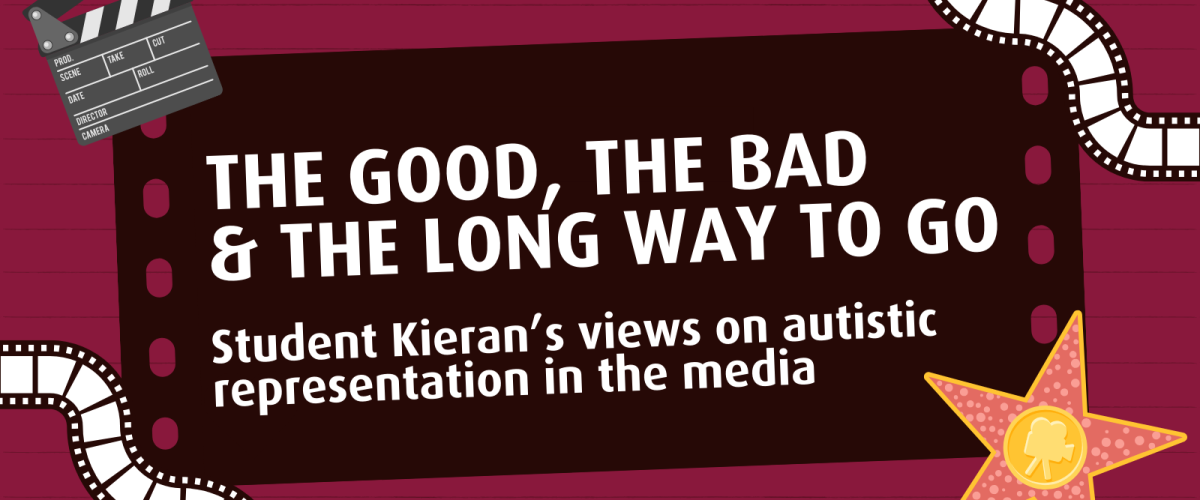The Good, The Bad, and The Long Way to Go: Student Kieran’s Views on Autistic Representation in the Media
Supported Internship student Kieran has recently completed an incredibly interesting project; he presented his views on Equality, Diversity and Inclusion in the media, with a focus on autism, the range of its representation, as well as how it can be improved upon moving forward.
The Good
Kieran discusses two examples that display what he considers a good representation of autism: Billy Cranston from Power Rangers (2017) and Temple Grandin (2010).
He praises actor RJ Cyler for his accurate and respectful portrayal of autism, recognising that the character of Billy did not feel exaggerated in his social awkwardness, as well as noting that, contrary to stereotypes, he still wanted to make friends.
Additionally, Kieran also applauded the film Temple Grandin for showcasing the protagonist’s views without infantilising her.
The Bad
Then, Kieran moved on to talking about two pieces of media that feature negative and/or inaccurate autism representation: Music (2021) and Big Bang Theory (2007-2019).
He criticises the titular character Music, stating how most of her depiction is offensive:
“from the way the other characters treat her like a walking burden, to the horrific amounts of misinformation the movie peddles, Music is arguably the most damaging representation of autism the community has ever seen”.
On the other hand, Kieran also acknowledges the mistreatment some autistic-coded characters receive in the media, through the lens of Sheldon Cooper – discussing how, despite the character being made up of a myriad of autistic stereotypes, the show-runners have consistently excused any ableist behaviour towards him because “he’s not actually autistic”.
…and The Long Way To Go for true inclusion in autistic media
Finally, Kieran shared his thoughts on the media’s neglect of accurate, non-stereotypical and respectful autism representation, saying:
“I think it’s extremely offensive that Hollywood continues to put autism into two boxes: Savant syndrome, or completely childlike. Autism is a spectrum and should be respected as such, not just used to make people feel better or give actors Oscars”.
He concludes by expressing how representation can bring autistic individuals happiness, visibility and empowerment, which is why he wishes to see better autistic representation in the future.






